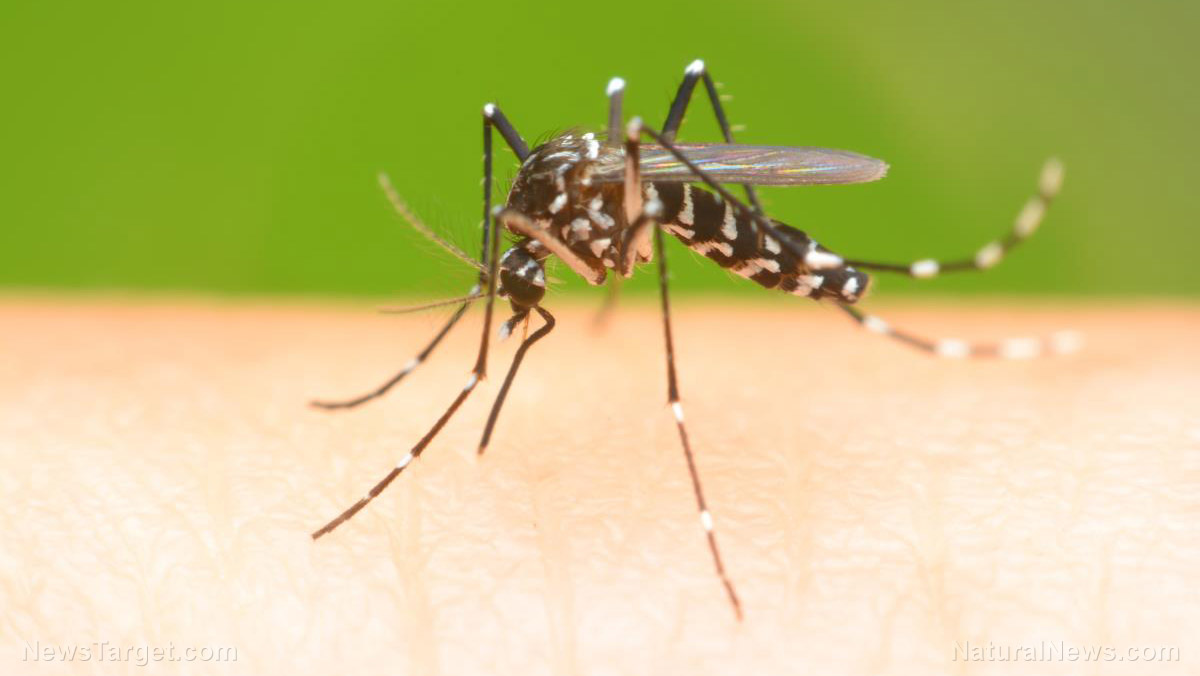MEDICAL PREPPING: Malaria cure with 100% success rate easily available as herbal supplement
01/20/2019 / By Tracey Watson

While the world was quick to go crazy about the potential dangers of the Zika virus, only to have the hype fizzle out to nothing, a far more insidious danger has been quietly gaining momentum with virtually no fanfare. Over 212 million people are infected with malaria each year, with close to half a million infections resulting in death, particularly in young children. And while many believe that malaria is a controllable illness that can successfully be treated in most patients with Artemisinin Combination Therapies (ACTs), the reality is that the parasites that cause three of the five types of malaria have developed resistance to this treatment, and drug-resistant malaria is becoming widespread.
The World Health Organization (WHO) calls this problem “an urgent public health concern, threatening the sustainability of the ongoing global effort to reduce the burden of malaria.” Fortunately, a plant used in traditional Amazonian, Chinese and African medicine for centuries as a malaria cure has recently come under the spotlight in Western medicine, with amazing results.
A study led by Pamela Weathers, a professor of biology and biotechnology at the Worcester Polytechnic Institute (WPI), published in the journal Phytomedicine, describes how the Artemisia annua plant, commonly known as sweet wormwood or sweet annie, saved 18 patients with drug-resistant malaria from the brink of death.
The Congolese patients, who ranged in age from 14 months to 60 years, had all developed severe, untreatable malaria, with symptoms ranging from loss of consciousness, to trouble breathing and convulsions, among others. When they failed to respond to intravenous treatment with an ACT, compassionate doctors decided to try the dried leaves of the Artemisia annua plant as a last resort. After only five days of the treatment, all 18 patients were fully recovered, including one child who had been in a coma. Blood tests revealed that absolutely no parasites remained in their blood.
The study authors concluded, “Successful treatment of all 18 ACT-resistant cases suggests that DLA [dried-leaf Artemisia] should be rapidly incorporated into the antimalarial regimen for Africa and possibly wherever else ACT resistance has emerged.”
While the results of this study are truly exciting and offer new hope for places like sub-Saharan Africa where malaria is rife, the study’s authors are claiming to have developed this as a new therapy for malaria, and that statement is disingenuous at best. As noted earlier, ancient healers from around the globe have been prescribing this plant as a malaria treatment for centuries. In reality, Western medicine has been incredibly slow to catch on.
And let’s face it: When it comes to natural plant medicines that can’t be patented and therefore cannot line the pockets of Big Pharma, Western medicine will pretty much exhaust every other option before it actually turns to such remedies as a last resort. In the meantime, of course, thousands and thousands of people die, suffer from debilitating symptoms or become addicted to pharmaceuticals with all their myriad side effects.
Marijuana is one glaringly obvious example of this. While scientific evidence continues to pile up proving the amazing healing powers of marijuana, the federal government refuses to soften its stance against it in any way. The government continues to classify it as a Schedule I substance, along with heroin, LSD and Ecstasy, claiming it has “no currently accepted medical use in the United States, a lack of accepted safety for use under medical supervision, and a high potential for abuse.” This, in spite of the fact that no human ever, anywhere, has died of a marijuana overdose, while thousands overdose and die on “legal” prescription medications like opioids each year.
If anything, the WPI study reinforces once again that when it comes to healing, nature knows best. We do not need man-made chemical medicines with all their side-effects, which bugs eventually build resistance to anyway. All we need to do is look at what we have been given naturally to find the cure to most illnesses.
Sources include:
Submit a correction >>
Tagged Under:
ACTs, alternative medicine, Artemisia annua, Cures, drug-resistant malaria, Herbs, infections, Malaria, mosquitoes, natural cures, natural health, natural medicine, natural remedies, plantmedicine, prevention, remedies, supplements, sweet annie, sweet wormwood
This article may contain statements that reflect the opinion of the author
RECENT NEWS & ARTICLES
Infections.News is a fact-based public education website published by Infections News Features, LLC.
All content copyright © 2018 by Infections News Features, LLC.
Contact Us with Tips or Corrections
All trademarks, registered trademarks and servicemarks mentioned on this site are the property of their respective owners.





















